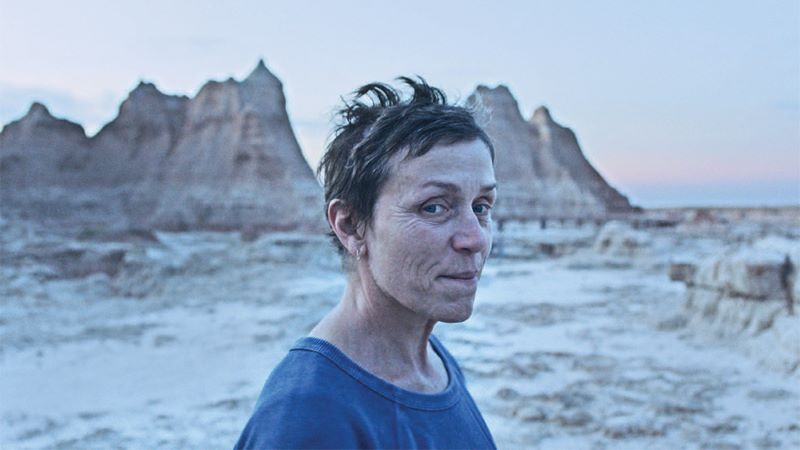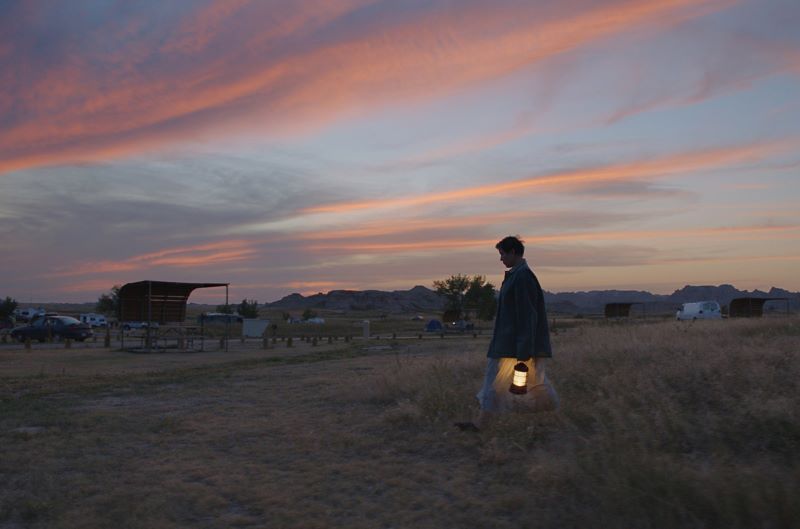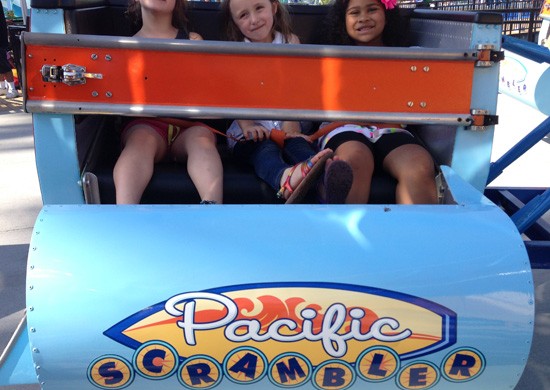Chloe Zhao’s “Nomadland,” starring Francis McDormand, represents a new kind of reflection of the modern-day blue-collar hardworking American who are living in a time of the great recession. These people re the beating heart of what it is like to work to achieve the American dream. They are also the face of what it is like to be discarded by the capitalistic system that has failed them. As such, Zhao presents us with a portrait of resiliency and bravery in the face of greedy corporations.

Based on the 2017 non-fiction book “Nomadland: Surviving America in the Twenty-First Century” by Jessica Bruder, “Nomadland” follows Fern (McDormand), a woman in her sixties who loses her family and her job. She even loses her entire hometown as the zip code has been discontinued and is no longer recognized. The whole situation puts things in perspective for Fern, who has adopted the nomadic lifestyle by continually moving and living in her van.
But “Nomadland” isn’t so much about Francis McDormand’s performance as it is, giving us a look at the American heartland that is rarely visualized on screen. Zhao gives the film authentcity by adding real-life nomads to the film. Sharing their perspective gives the audience a better understanding of why they chose to live this way and how the community works together to help each other survive. Through their eyes, Zhao helps develop an intimate relationship between the characters like Linda May, Charlene Swankie, and Bob Wells with the audience. Their words have a profound effect, and the thankless jobs that they work provide a different kind of viewpoint on the people we may encounter during our road trips across America.
Fern becomes a vessel for the audience as she treks across America, working various odd jobs while also trying to keep warm in her van parked out in the cold Midwest of America. Her experiences become our experiences and the relationships that she cultivates become our relationships. She suddenly sees that she isn’t alone when it comes to losing everything. And though some may have objective opinions about Fern’s newfound lifestyle, our lead character knows full well that she has found her purpose in life.
Zhao gives “Nomadland” more depth by surrounding Fern with other nomads, all of whom have their own stories to tell. Some were teachers or miners, while others are state park rangers or Vietnam vets. While their history may differ, all of them share a connection of the love of being free from the brutal confines of a demanding system that determines their social class. These people support each other through their mobile communities. Never staying in one place for far too long, they survive by exchanging life-saving tips that will help keep them warm and prevent the authorities from giving that dreaded knock on the door.
But as the nomadic lifestyle grants these people absolute freedom that allow them to connect with life in ways that the ambivalent capitalistic system would otherwise prevent them from living. However, it is also a lifestyle that has its drawbacks. It’s harder to access the kind of healthcare all people should have their rights to access. There is also no address to call home. Additionally, society looks down upon them as either rejects or outright lazy people. “Nomadland” does not shy away from the fact that it is a critique of capitalism and the modern-day American dream.
Through Fern, we see that these nomads want to work. Often, they go from place-to-place working various gigs to keep fuel in their vehicles so that they can move on to the next destination. Whether it is working as a park ranger and back of the house cooks or at packaging at Amazon warehouses, they swallow their pride as travelers and corporations often disregard them or ignore them outright.
And as much as Fern is mostly a narrative vehicle in “Nomadland” to help give the audience a look at the life of an American vagabond, the film provides the character with a chance to use the experience to transform. Fern’s family and friends were able to adapt to economic changes or made other life choices. But it is not as though she has forgotten her past. Shots of Fern looking at the distance with those sad eyes who has seen plenty of suffering gives us the impression that she longs for the life that life she once knew and is quietly suffering.
At the same time, chance encounters with friends and family help Fern reaffirm that she has made the correct decision accepting the nomadic lifestyle. In one instance, Fern meets up with an old neighbor who asks how she is doing and if she needs help getting back up on her feet. Though Fern declines, the neighbor’s daughter asks if Fern is homeless? Fern tells her that she is “houseless,” which isn’t the same thing as being “homeless.” In another scene, we see Fern having to swallow her pride and ask her sister for money to get her van, which was in holding, back. Though it is a contentious meeting where Fern clashes with one of her sister’s friends, her sister admits to being jealous of her continuing to hold onto her bravery and confidence and that she is living as a pioneer
“Nomadland” is the much-needed critique of modern-day capitalism and how it is a system that has failed these people who have chosen the nomadic way of living. The camera work allows the audience to be a part of Fern’s larger journey through life and North America. The close-up shots of Fern’s face bring an intimate look at some of the pain that comes with the loneliness of being a nomad. The wider shots capture America’s beauty when it’s completely still, and the nosiness of civilization or the horror of capitalism is not there to disturb its peace.
It would be a bit cliché to say that it is all about the journey and not the destination, but that isn’t the case for something like “Nomadland.” Zhao’s film is an accurate representation of how the journey is a transformative process for those who choose to embark on a physically and emotionally taxing quest to find an identity when it has been stripped away by a faceless group who seem to be more concerned about the money than the people. It’s the kind of journey that allows its characters and audience to meet new people with a different perspective and outlook on life.
“Nomadland” is scheduled to debut in theaters on February 19, 2021.
10/10










